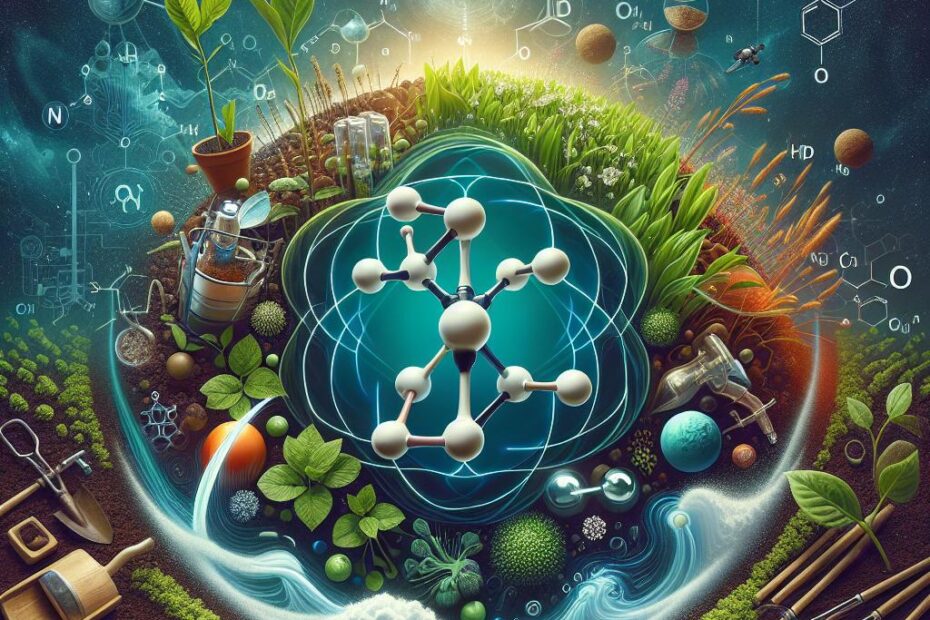In the world of gardening and agriculture, nitrogen is a crucial element for the healthy growth of plants. Nitrogen is a key component of chlorophyll, which is essential for photosynthesis, the process by which plants convert sunlight into energy. Without an adequate supply of nitrogen in the soil, plants would struggle to grow, develop, and produce the fruits and vegetables that we rely on for food.
In this article, we will explore the importance of nitrogen in soil, its role in plant growth, and how to maintain optimal levels of nitrogen for healthy plants.
Importance of Nitrogen in Soil
Nitrogen is one of the essential macronutrients that plants need for their growth and development. It plays a vital role in various physiological processes, such as:
-
Photosynthesis: Nitrogen is a crucial component of chlorophyll, the green pigment that helps plants absorb sunlight and convert it into energy through photosynthesis.
-
Protein Synthesis: Nitrogen is a building block for amino acids, which are the building blocks of proteins. Proteins are essential for the growth and development of plant cells.
-
Cell Division: Nitrogen is needed for cell division and growth, which is essential for plant growth and development.
-
Enzyme Activity: Many enzymes in plants require nitrogen for their activation. Enzymes play a crucial role in various metabolic processes that help plants thrive.
-
Vitamin Synthesis: Nitrogen is essential for the synthesis of vitamins in plants, which are necessary for their overall health and immunity.
In summary, nitrogen is vital for the overall health, growth, and productivity of plants. Without an adequate supply of nitrogen in the soil, plants would struggle to perform essential functions, leading to stunted growth, poor fruit and flower development, and increased susceptibility to diseases.
Maintaining Optimal Levels of Nitrogen
To ensure that plants have an adequate supply of nitrogen, gardeners and farmers can take the following steps:
-
Soil Testing: Conduct regular soil tests to determine the nitrogen levels in the soil. This will help identify any deficiencies or excesses of nitrogen and guide the application of fertilizers accordingly.
-
Nitrogen-Rich Fertilizers: Use nitrogen-rich fertilizers, such as ammonium nitrate, urea, or compost, to supplement the soil with nitrogen. Organic fertilizers like compost also improve soil structure and fertility over time.
-
Crop Rotation: Rotate crops to help maintain nitrogen levels in the soil. Nitrogen-fixing plants, such as legumes like peas and beans, can help enrich the soil with nitrogen through their symbiotic relationship with nitrogen-fixing bacteria.
-
Cover Crops: Plant cover crops like clover or alfalfa to help fix nitrogen in the soil and protect it from erosion. Cover crops also improve soil health and structure.
-
Avoid Overfertilizing: Excessive use of nitrogen fertilizers can lead to nutrient runoff, water pollution, and harm to beneficial soil organisms. Follow recommended application rates to prevent nitrogen leaching.
By following these practices, gardeners and farmers can ensure that plants have an adequate supply of nitrogen for optimal growth, yield, and overall health.
Benefits of Nitrogen in Soil
Improved Plant Growth: Nitrogen promotes healthy plant growth by stimulating leaf development, root growth, and overall vigor.
Increased Yield: Adequate nitrogen levels in the soil result in higher yields of fruits, vegetables, and crops.
Enhanced Nutrient Uptake: Nitrogen helps plants absorb other essential nutrients, such as phosphorus and potassium, more efficiently.
Disease Resistance: Plants with sufficient nitrogen are better equipped to resist diseases and pests due to their strong immune system.
Environmental Benefits: Proper nitrogen management reduces the risk of nitrogen runoff and pollution, protecting water sources and ecosystems.
In conclusion, nitrogen is a vital element in soil that plays a crucial role in plant growth, development, and overall health. By understanding the importance of nitrogen and implementing practices to maintain optimal levels in the soil, gardeners and farmers can ensure healthy plants, increased yields, and a sustainable environment for future generations. Remember to test your soil regularly, use nitrogen-rich fertilizers wisely, and practice crop rotation and cover cropping to maintain a healthy nitrogen balance in your soil. By caring for your soil, you will reap the benefits of vibrant, thriving plants in your garden or farm.
